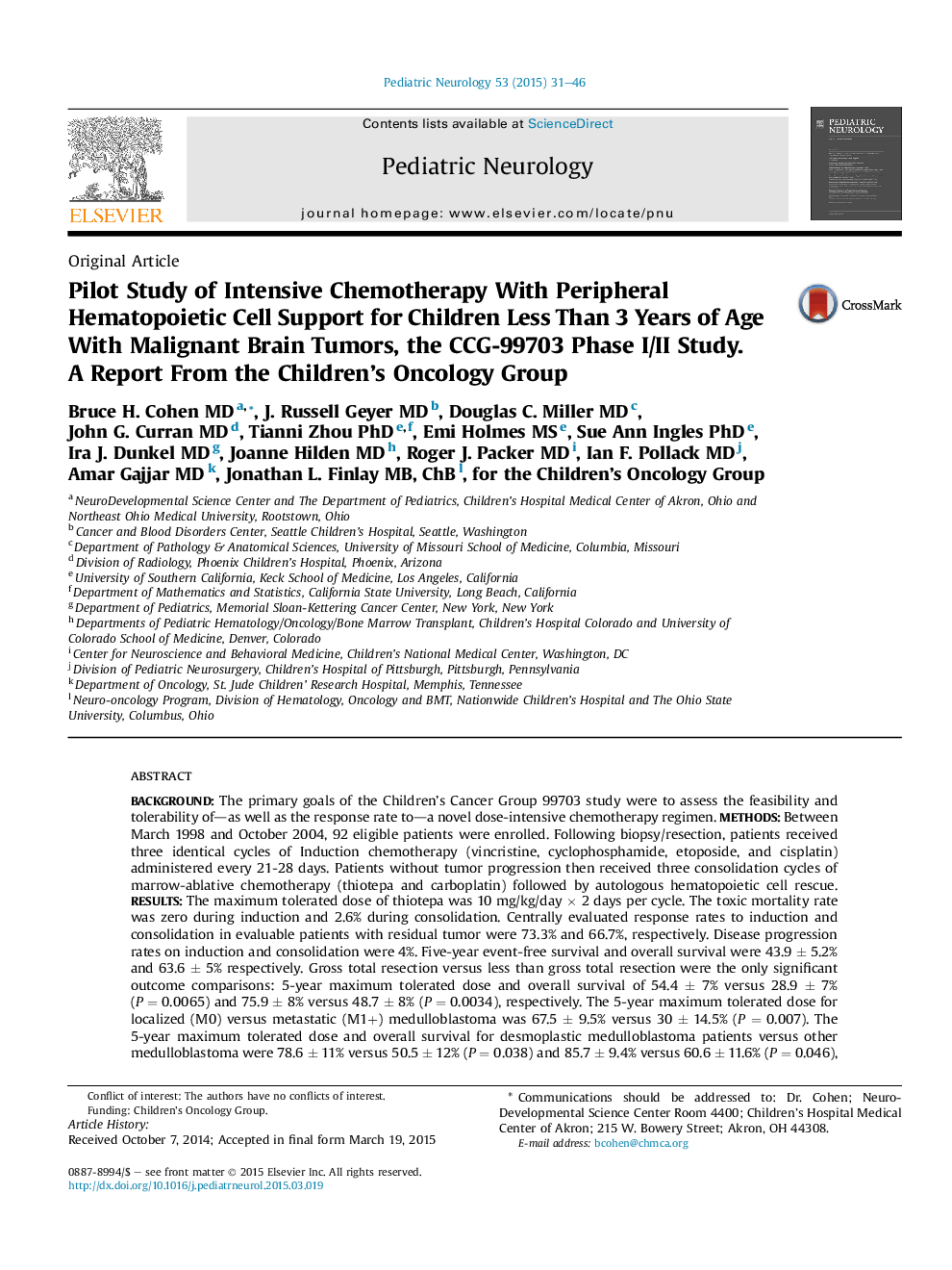| کد مقاله | کد نشریه | سال انتشار | مقاله انگلیسی | نسخه تمام متن |
|---|---|---|---|---|
| 3084512 | 1189771 | 2015 | 16 صفحه PDF | دانلود رایگان |

BackgroundThe primary goals of the Children's Cancer Group 99703 study were to assess the feasibility and tolerability of—as well as the response rate to—a novel dose-intensive chemotherapy regimen.MethodsBetween March 1998 and October 2004, 92 eligible patients were enrolled. Following biopsy/resection, patients received three identical cycles of Induction chemotherapy (vincristine, cyclophosphamide, etoposide, and cisplatin) administered every 21-28 days. Patients without tumor progression then received three consolidation cycles of marrow-ablative chemotherapy (thiotepa and carboplatin) followed by autologous hematopoietic cell rescue.ResultsThe maximum tolerated dose of thiotepa was 10 mg/kg/day × 2 days per cycle. The toxic mortality rate was zero during induction and 2.6% during consolidation. Centrally evaluated response rates to induction and consolidation in evaluable patients with residual tumor were 73.3% and 66.7%, respectively. Disease progression rates on induction and consolidation were 4%. Five-year event-free survival and overall survival were 43.9 ± 5.2% and 63.6 ± 5% respectively. Gross total resection versus less than gross total resection were the only significant outcome comparisons: 5-year maximum tolerated dose and overall survival of 54.4 ± 7% versus 28.9 ± 7% (P = 0.0065) and 75.9 ± 8% versus 48.7 ± 8% (P = 0.0034), respectively. The 5-year maximum tolerated dose for localized (M0) versus metastatic (M1+) medulloblastoma was 67.5 ± 9.5% versus 30 ± 14.5% (P = 0.007). The 5-year maximum tolerated dose and overall survival for desmoplastic medulloblastoma patients versus other medulloblastoma were 78.6 ± 11% versus 50.5 ± 12% (P = 0.038) and 85.7 ± 9.4% versus 60.6 ± 11.6% (P = 0.046), respectively.ConclusionsThis phase I dose-escalation study of marrow-ablative thiotepa regimen determined a maximum tolerated dose that had acceptable toxicity. Overall survival data justify this strategy for current Children's Oncology Group studies.
Journal: Pediatric Neurology - Volume 53, Issue 1, July 2015, Pages 31–46